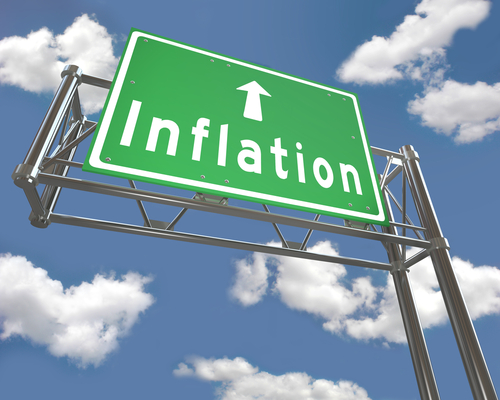The prevailing macroeconomic indicators point to an economy in distress; no thanks to rising inflation rate, worsening unemployment, declining economic growth and a weakened manufacturing base.
The indicators point to an economy irretrievably headed for more troubles in the days ahead. Last month, inflation rate soared to 9.4 per cent from 9.3 per cent in August. It was the highest inflation rate in two years, according to the National Bureau of Statistics (NBS). There are fears that the rate may be inching to double digit by next quarter. This is because at 9.4 per cent, the headline inflation rate has moved further away from the Central Bank of Nigeria (CBN’s) six to nine per cent target band.
Expectedly, the rising inflation has triggered an unprecedented surge in the prices of food items.
Despite the much-touted ‘healthy growth’ of the economy under the immediate past administration, which the government argued was averaging almost seven per cent, many Nigerians can barely afford a balanced diet of three square meals daily. Unemployment has also risen alongside the increased incidence of poverty.
A recent World Bank report has classified Nigeria, with about 170 million people, among countries with extreme poverty.
The bank said more than 70 per cent of Nigeria’s population live on $1.25 (about N250) or less per day.
Specifically, the report revealed that seven per cent of the 1.2 billion people living below poverty line in the world are Nigerians. This means 84million – representing about half of Nigeria’s population – are extremely poor.
An increasing number of Nigerians are said to be daily losing their access to basic social and public infrastructure, potable water, sanitation and healthcare.
The economic growth rate has been on the decline – a development which experts identify as a direct consequence of falling oil prices and subsequent depreciation of the naira.
The economy, which recorded a Gross Domestic Product (GDP) growth of 6.54 per cent in the second quarter of last year, has dropped to 2.35 per cent this year, the NBS said.
The 2.35 per cent GDP growth recorded in the second quarter of this year, marked the second quarter in a row that the economy will record a GDP below its anticipated performance.
According to experts’ interpretation, an average Nigerian is getting poorer when a 2.35 per cent growth is recorded at a time the population growth is close to 2.85 per cent.
The final projection for the year, according to the Bureau, is expected to be 2.63 per cent, compared to last year’s 6.22 per cent. The projection is less than half of the budgeted growth rate.
Industry watchers are worried that the third quarter has ended without any visible economic stimulus to raise the GDP growth from the abysmal 2.35 per cent recorded in the second quarter. They argue the focus of the President Muhammadu Buhari led-administration has been more on the fight against corruption and Boko Haram insurgency.
“The economy has been in its lowest ebb because President Buhari is focusing on the fight against corruption, which has been with us for a very long time,” the Registrar/Chief Executive Officer of the Institute of Business Development (IBD), Paul Ikele, observed.
Experts believe that the economy should be run alongside the anti-corruption war. This has to be so because the Nigerian economy is in dire straits with the national currency on a southward trajectory, unemployment rising dangerously and manufacturing concerns groaning under inadequate infrastructures and harsh government policies.
Just last week, the International Monetary Fund (IMF) raised the alarm over rising poverty in Africa’s largest economy.
IMF’s Africa Director, Antoinette Sayeh, alleged that the Central Bank of Nigeria (CBN) official foreign exchange window restriction placed on the importers of 41 select items has been “quite detrimental” to the economy.
The Lagos Chamber of Commerce and Industry (LCCI) and other organised private sector groups had earlier made similar observation on the CBN restriction policy.
Generally speaking, this is a tough time for businesses operating in the country.
LCCI pointed out that devaluation of the national currency, restriction to foreign exchange and an inability to source critical raw materials may push many firms over the precipice resulting in business closures, loss of jobs, declined manufacturing sector production and greater social tension.
Government has the responsibility of reversing this negative trend by stimulating the economy.
We therefore call on the Federal Government to urgently consider palliatives and incentives to prevent such a scenario and a collapse of the national economy.
Government should consider palliatives for the manufacturing sector and other critical sectors of the economy.
Copyright Ships & Ports Ltd. Permission to use quotations from this article is granted subject to appropriate credit given to www.shipsandports.com.ng as the source.
